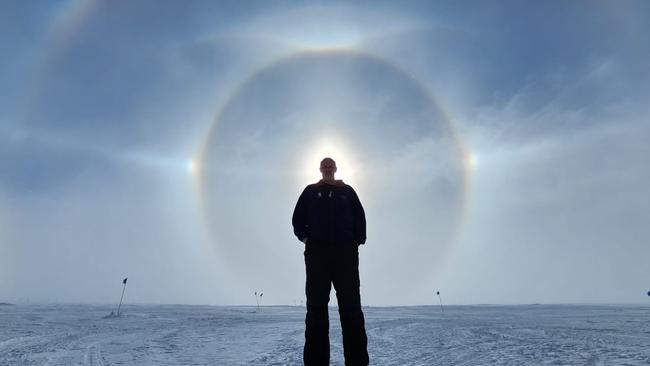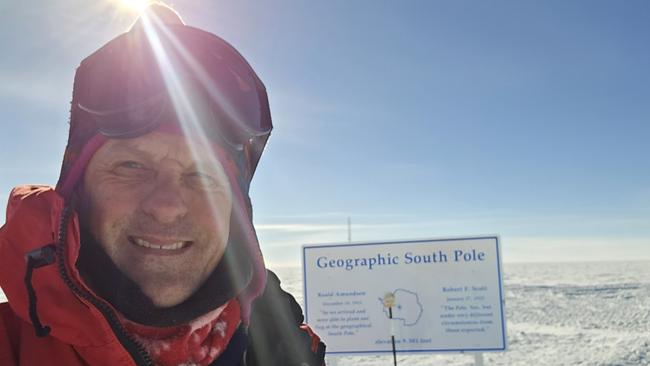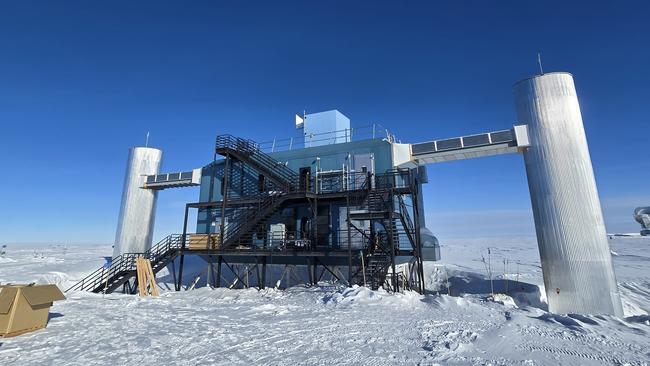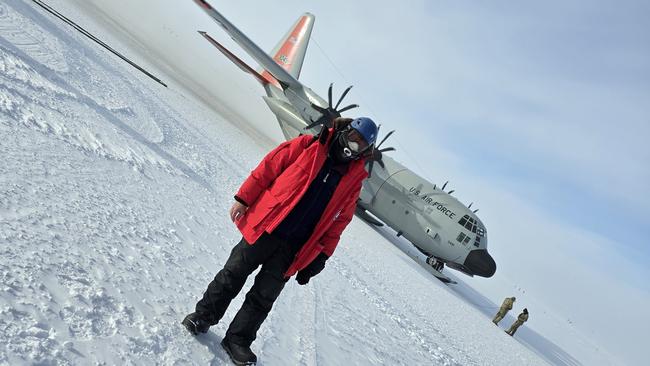Adelaide University researcher and physicist Gary Hill joins global team in South Pole to complete $300 million project
An Adelaide University researcher has swapped an Aussie summer for his 13th expedition to Antarctica to complete a $300 million project buried deep in the ice.

SA News
Don't miss out on the headlines from SA News. Followed categories will be added to My News.
An Adelaide astrophysicist has spent his summer at the ends of the Earth, working on the installation of a highly technical piece of scientific equipment buried deep in the ice beneath the South Pole.
University of Adelaide researcher Gary Hill is a member of IceCube, an international collaboration between 58 countries, which explores deep space through a detector array embedded in a cubic kilometre grid in the Antarctic ice.
The array captures neutrinos, almost massless particles that are produced in extreme environments in the vicinity of black holes, that can travel thousands of light years before reaching Earth.
The 2024-25 summer was Dr Hill’s 13th visit to the South Pole, having previously been on the team that installed the array between 1996 and 2010.

“Even though this was my 13th trip, it’s still just as amazing as the first time,” Dr Hill told The Advertiser.
“It’s so isolated I feel like I’m on another planet.”
This latest expedition begins a two-year upgrade cycle on the detectors, which have already racked up a cost of around $300m.
Currently, the array comprises 86 strings of 60 detector modules each in the ice, with plans for seven more to be installed in the next 12 months.
Dr Hill and the other researchers spent their two-month stint at the Pole preparing a hot water drill, which uses water heated to near boiling to melt 60cm boreholes 2500m deep in the Antarctic ice.

However, it’s not all science for the 140 summer residents of the South Pole base.
Every year there’s a marathon, a 42km trek that loops around the geographical South Pole, which the 2024 winner did in just over seven hours, an impressive feat considering the highest temperature there all summer was around -20c.
There are also various tourists and dignitaries that stop by.
In early January, Chilean President Gabriel Boric visited the station, complete with an escort of Black Hawk military helicopters.
On one of Dr Hill’s previous trips, astronaut Jim Lovell of Apollo 13 fame appeared to give a lecture to the base’s crew.

The IceCube project, officially known as the IceCube Neutrino Observatory, is the largest high-energy neutrino detector in the world, and has been responsible for several significant scientific discoveries since becoming fully operational in 2010.
In 2018, IceCube discovered a galaxy four billion light years away spewing out particles the same age as the Earth.
Originally published as Adelaide University researcher and physicist Gary Hill joins global team in South Pole to complete $300 million project




